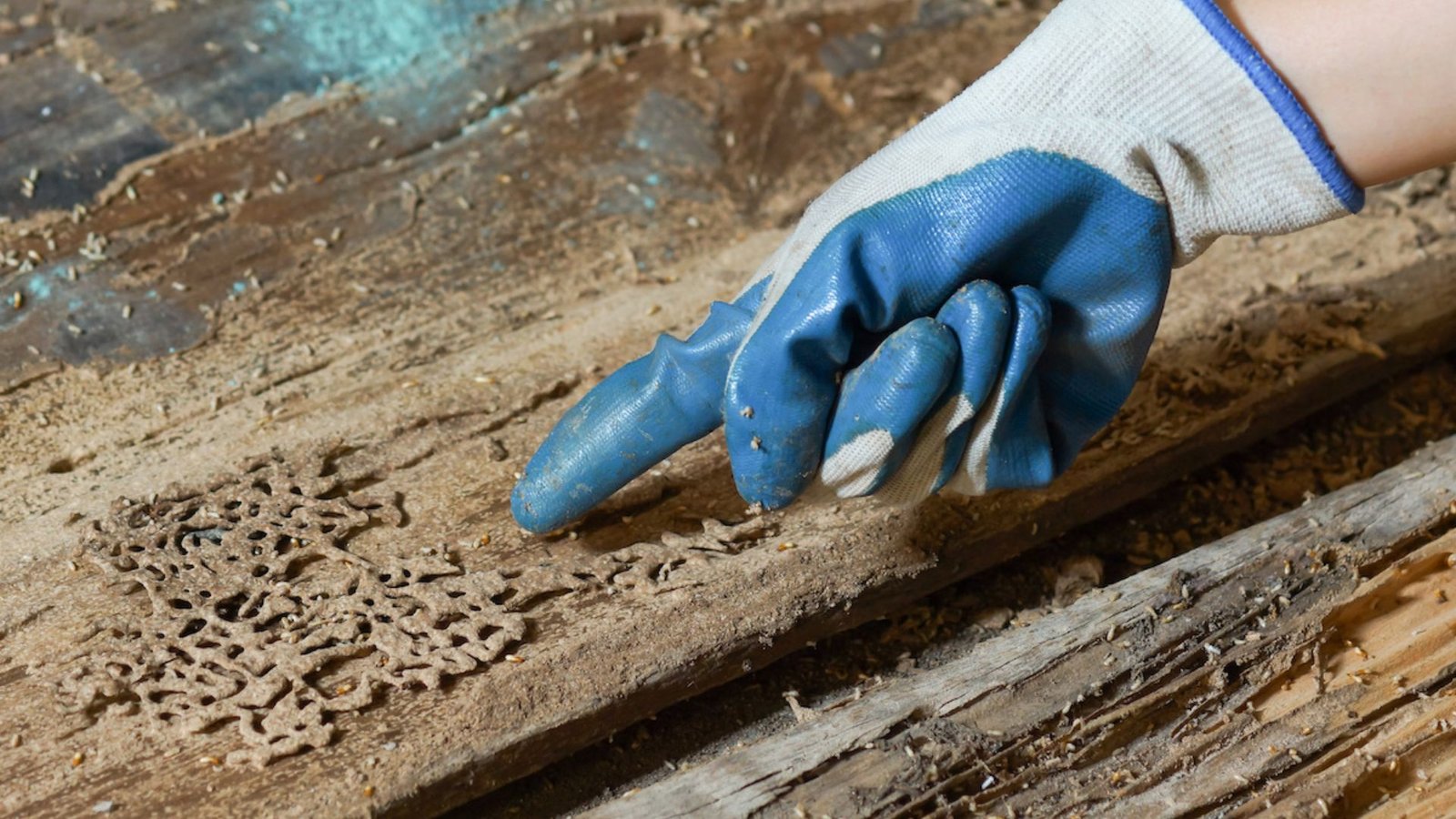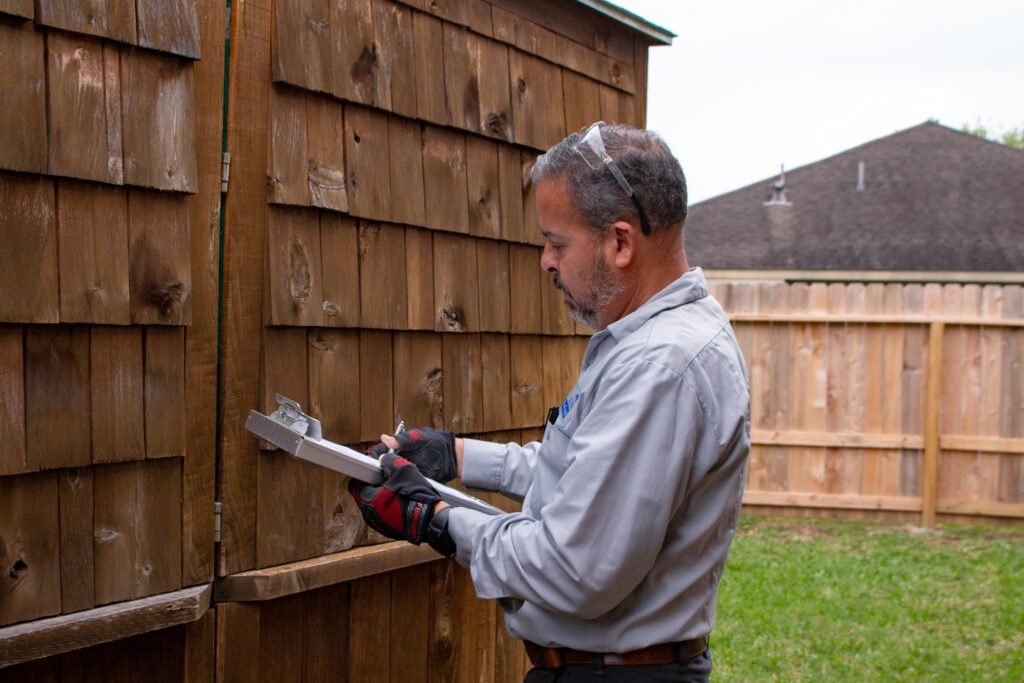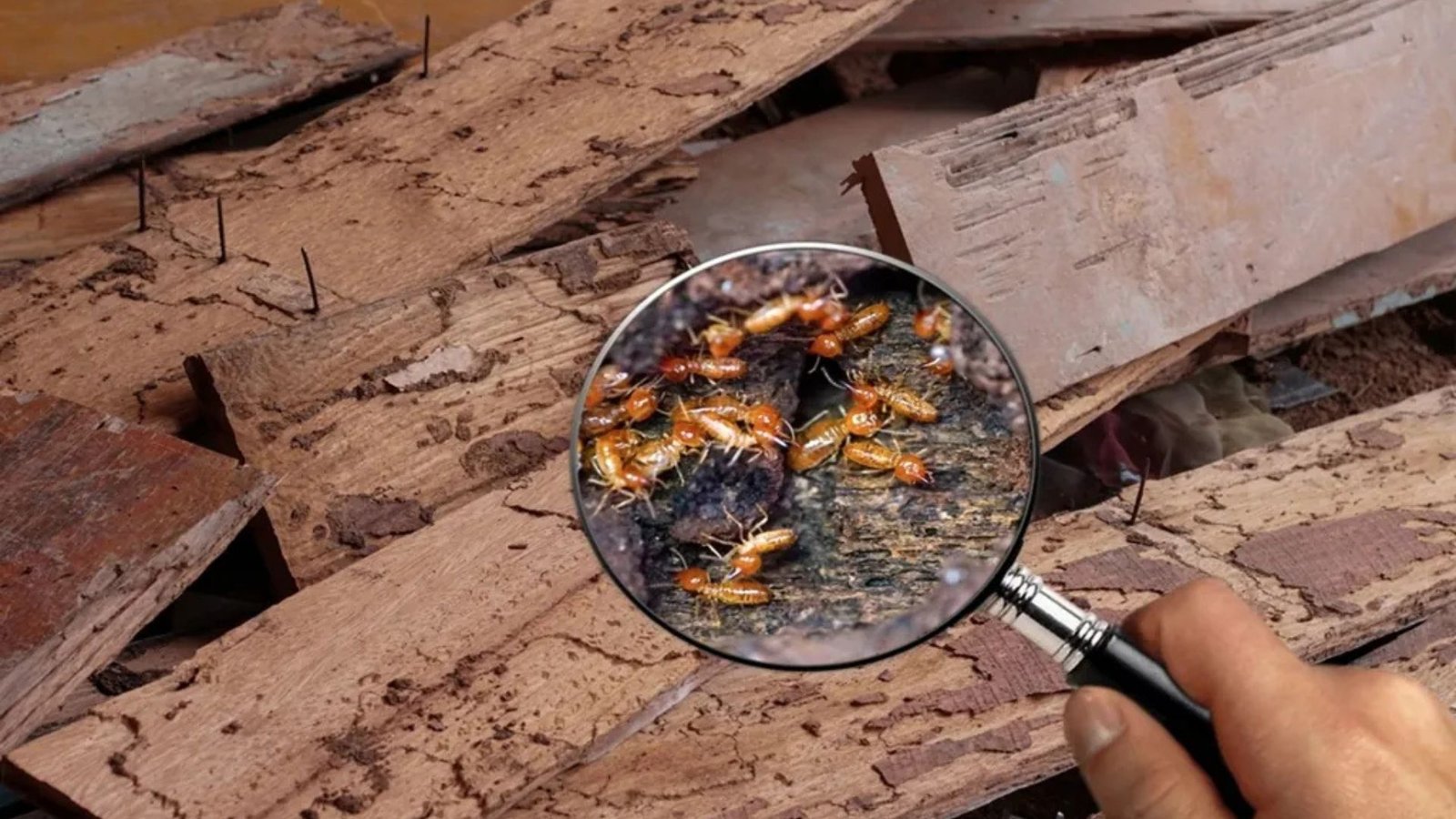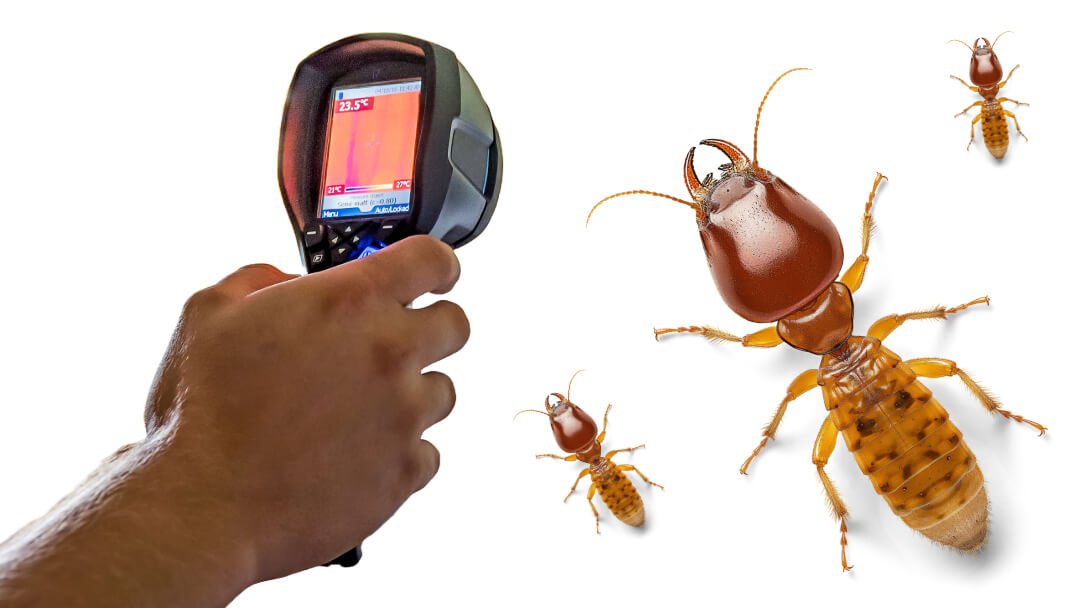Termites are small but mighty pests that can cause major damage to your home. To prevent costly repairs, it’s essential to schedule a termite inspection. But how much does a termite inspection cost? The price can vary based on several factors, such as your location, the size of your property, and the company you hire.
In this article, we’ll break down the cost of a termite inspection, what’s included in the service, and why investing in an inspection is worth every penny.
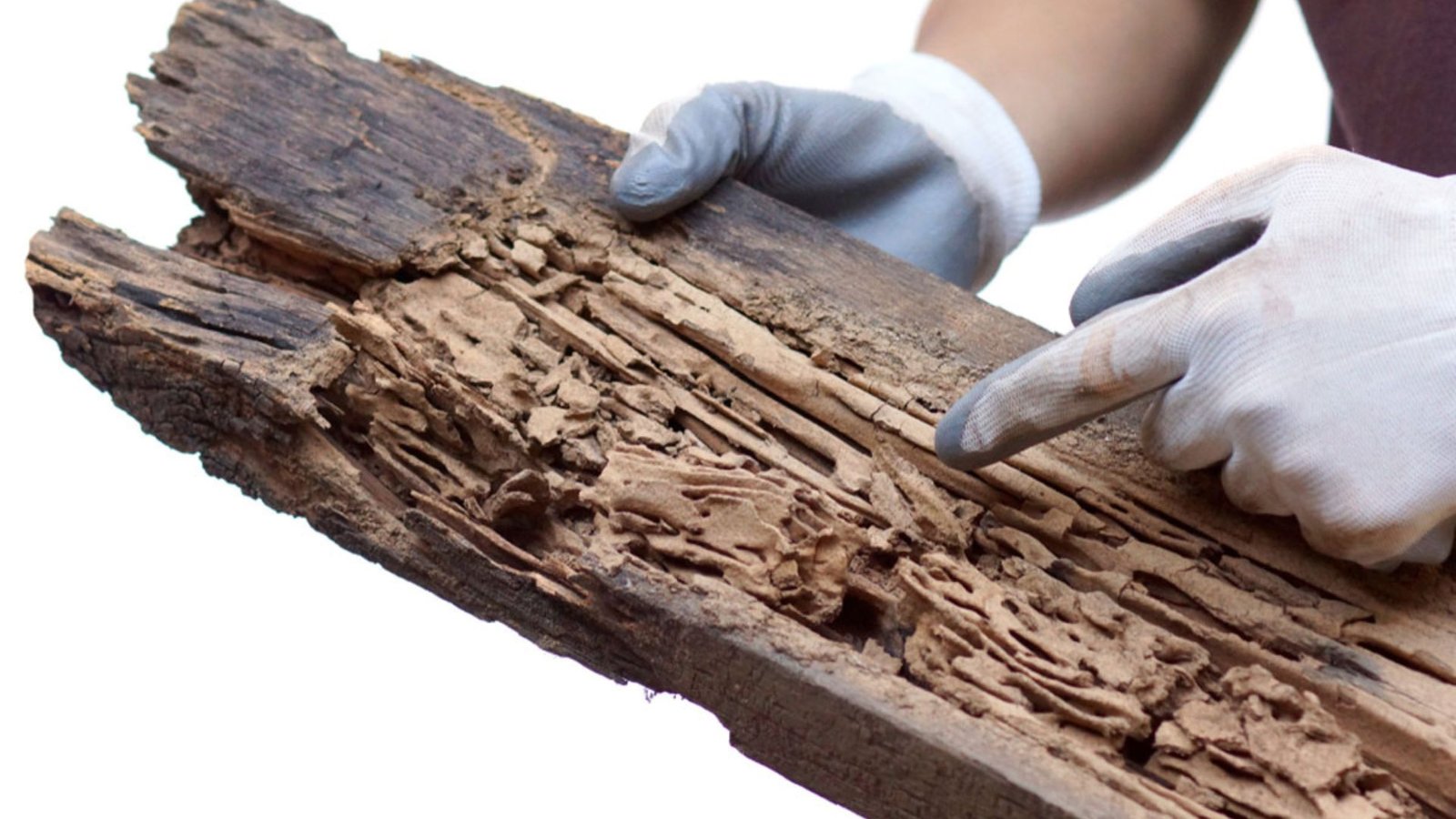
1. Average Cost of a Termite Inspection
On average, a termite inspection costs between $50 to $300. This range depends on several factors, including the size of your home and the inspection company’s pricing policies.
- Smaller homes or apartments: Typically, the cost will be closer to the lower end of the range, around $50 to $150.
- Larger homes or commercial properties: If your home is bigger or the property is more complex, the cost could be on the higher end, around $200 to $300.
Keep in mind that these are general estimates. The actual cost of a termite inspection may vary depending on where you live and the inspection company you choose.
2. Factors That Affect Termite Inspection Costs
Several factors can influence the price of a termite inspection. Here are some of the key considerations:
Size of the Property
The size of your home or building is one of the biggest factors in determining the cost. Larger properties require more time and effort to inspect, which leads to higher fees. For instance, a small apartment might only take an hour to inspect, while a large house or commercial building might require several hours.
Location
Where you live can impact the cost of a termite inspection. In areas with a high risk of termite infestations, the demand for inspections may be higher, potentially increasing prices. Similarly, the cost of living in your region can affect service fees. For example, termite inspections in urban areas or places with a higher cost of living might be more expensive than in rural areas.
Type of Inspection
The method of inspection can also affect the cost. A visual inspection, which involves looking for signs of termite activity, is the most common and affordable type of inspection. However, if there’s reason to suspect an infestation in hidden areas, the inspector may use advanced equipment like infrared cameras or moisture meters. These tools help detect termites inside walls, ceilings, or other inaccessible spaces, which can increase the cost.
Some companies may also offer fumigation or other treatment options as part of a larger termite inspection service, which could raise the overall price.
Additional Services
Some termite inspection companies offer additional services, such as termite treatment or preventive measures. If you choose to combine the inspection with termite treatment or pest control, the total cost will be higher. These services often come with a separate price tag, so it’s important to ask for an itemized estimate.
3. What’s Included in a Termite Inspection?
A typical termite inspection involves a thorough examination of your property to check for signs of termite activity. Here’s what you can expect during the inspection:
- Exterior inspection: The inspector will check your home’s foundation, siding, windows, and any wooden structures outside. They’ll look for mud tubes, droppings (frass), or other signs of termite damage.
- Interior inspection: Inside your home, the inspector will check areas like the attic, basement, crawl spaces, and other wooden structures. They’ll search for signs of termite feeding, including hollow-sounding wood, frass, or visible damage.
- Wood damage assessment: The inspector will evaluate the condition of wood beams, flooring, and walls to determine whether termites have caused damage.
- Moisture checks: Since termites are attracted to moisture, the inspector may check areas with high humidity or water damage to see if they could be drawing termites.
- Report of findings: After the inspection, you’ll receive a detailed report that outlines whether termites were found and any damage caused. The report will also include recommendations for treatment if necessary.
Some inspectors may offer more advanced services, such as thermal imaging or moisture readings, but these may come with an additional cost.
4. Is a Termite Inspection Worth the Cost?
Yes, a termite inspection is worth the cost. Here’s why:
- Early detection saves money: If termites are found early, they can be treated before causing extensive damage. Repairing wood structures that have been infested by termites can cost thousands of dollars, so a $100 inspection is a small investment compared to the potential cost of repairs.
- Protects your property: A termite inspection helps safeguard the structural integrity of your home. By catching infestations early, you can prevent significant damage and preserve the value of your property.
- Peace of mind: Knowing that your home is free from termites gives you peace of mind. You won’t have to worry about the possibility of an infestation ruining your home’s foundation or wooden features.
In the end, the cost of a termite inspection is far less than the cost of extensive termite damage repairs, making it a worthwhile investment for any homeowner.
5. Are Termite Inspections Free?
In some cases, termite inspections are offered for free, particularly if they are part of a real estate transaction. For example, if you’re buying or selling a home, the seller may provide a free termite inspection to assure the buyer that the property is free from termites.
However, while free inspections are available, they may not be as thorough or detailed as paid services. It’s important to ensure that any free inspection meets your expectations and covers all necessary areas of your property.
6. How Often Should You Have a Termite Inspection?
It’s generally recommended to have a termite inspection once a year. This annual check-up allows you to catch any potential termite problems early, especially since termites can do significant damage over time without being noticed.
If your home has previously been infested with termites, you may want to schedule inspections more frequently to ensure the problem has been fully dealt with. Additionally, homes located in areas with high termite activity may benefit from more frequent inspections.
7. Conclusion
The cost of a termite inspection can vary, but it’s typically between $50 and $300, depending on factors like the size of your home and the inspection methods used. Whether you’re looking to protect your home from costly damage or ensure peace of mind, a termite inspection is a small investment that can save you a lot in the long run. If you’re unsure about the costs in your area, it’s always a good idea to get quotes from different companies and compare their services to find the best deal.
In the end, investing in a termite inspection is one of the smartest decisions a homeowner can make to protect their property and investment.

